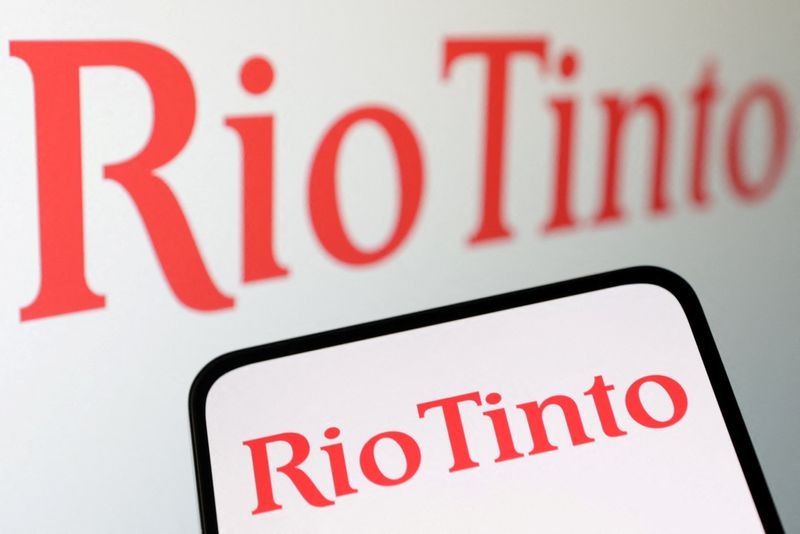Investing.com’s stocks of the week
By Melanie Burton and Rishav Chatterjee
MELBOURNE (Reuters) -Rio Tinto's first-half underlying earnings fell to their lowest in three years as easing iron ore prices offset an uptick in shipments from its Pilbara operations, it said on Wednesday, while also announcing a dividend cut.
Iron ore accounts for 70% of Rio Tinto (NYSE:RIO)'s profit and prices for the raw material used to make steel could improve going forward as Beijing has pledged to roll out more policies to boost growth after the world's second-largest economy struggled with an uneven recovery in the first half of the year.
Rio, the world's biggest iron ore producer, was cautiously optimistic on China's economy over the rest of the year, CEO Jacob Stausholm said.
"Our experience with China is that if things are going less well, then the Chinese have a quite impressive ability to also manage the economy," he said.
Rio reported underlying earnings of $5.7 billion for the six months ended June 30, lower than last year's $8.63 billion and a consensus of $5.85 billion, according to Visible Alpha.
Rio realised lower commodity prices during the six months that ended on June 30, in line with slowing global consumption, but continues to see solid demand for its products in China, the world's biggest steel producer.
"Rio is leveraged to even a modest recovery in the Chinese property markets," said Jefferies, which has a buy rating on the stock.
Average realised prices for Pilbara iron ore slipped to $98.60 per wet metric ton in the first half, 11.1% below last year. That offset a 7% rise in shipments from Pilbara to 161.7 million metric tons.
The Anglo-Australian miner declared an interim dividend of $1.77 per share, below last year's $2.67 and slightly below a Vuma consensus of $1.80.
"We will continue paying attractive dividends and investing in the long-term strength of our business as we sustain and grow our portfolio," said Stausholm.
The world's largest iron ore producer flagged a shortage of skilled workers in a tight labour market along with supply-chain issues.
"Our operations and growth projects continue to be impacted by high unplanned absences, tight labour markets, rising input costs and supply chain disruptions," the miner said in a statement.
Rio Tinto's exploration and related costs doubled to $700 million as costs rose at the giant Simandou iron ore project in Guinea and due to changes in scope and higher inflation at its Rincon lithium project in Argentina.
It also took an $800 million after-tax impairment mainly related to its Australian alumina refineries in Queensland, triggered by "challenging market conditions" and higher projected costs to decarbonise the high emitting sector.
GALLIUM, GERMANIUM?
Rio Tinto is assessing what more critical minerals it can extract through processing, and that potentially includes minor metals gallium and germanium, CFO Peter Cunningham told Reuters.
Top producer China curbed exports of the metals, used in semiconductor chip manufacturing, earlier this year.
Rio already extracts scandium, which makes steel stronger, through its Canadian titanium dioxide operations, and tellurium through its Kennecott smelter in the United States.
"Through the processing side you can recover critical minerals ... our business footprint gives us that capacity," Cunningham said.
Rio's Australian-listed shares closed up 1.4% before the earnings announcement but its London-listed shares were down 2.3% afterward.
